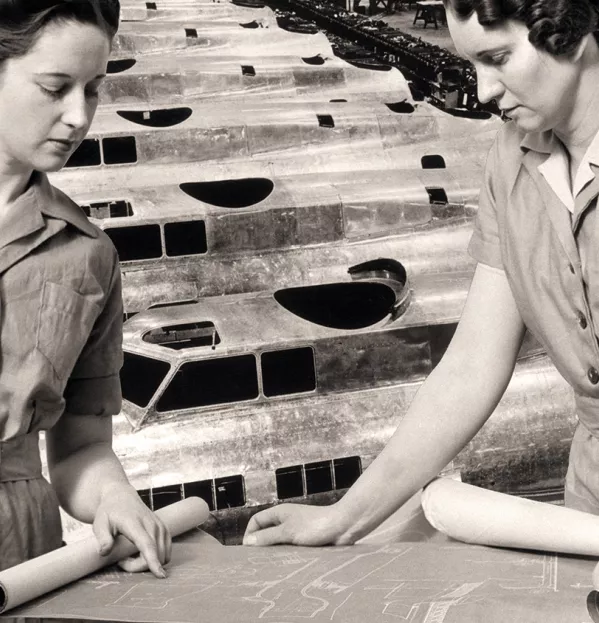
Create a ‘war room’ to win the Ofsted battle

An Ofsted base room is the beating heart of any college inspection. It is the nerve centre (as well as a centre of nerves); it is the war room from which battles are planned and troops are sent forth; and it is the barracks to which loyal soldiers return, war-weary, to be debriefed and readied for their next attack. Get the base room right and half the battle is fought and won.
In a full FE inspection - with 10 inspectors on site, demanding several meetings a day for four days - it is impossible for the college leadership team to carry on as if it’s a normal week. The nominee, for example, is likely to chair staff briefings at 7am and be in and out of meetings with inspectors from 8.30am until the final “keeping in touch” session at 4.30pm, after which staff will be debriefed at 6pm.
So what does an effective base room look and feel like? A good base room isn’t barricaded against the outside world: for the majority of college staff, an inspection is stressful and, as such, college leaders need to “walk the floor” as often as possible, to be visible, and to offer words of encouragement and praise. Projecting calm and confidence might mean acting, but people need to feel like they’re in safe hands. Leadership means leading by example and from the front. The inside of the base room should also exude this sense of calm collectedness. More than anything, though, the base room should be organised and purposeful, and this starts with the pre-inspection briefing...
Pick your battles
When you read the pre-inspection briefing you might be overcome by the number of points to consider, but don’t take it personally. Be quick to correct mistakes and provide supporting evidence, then pick your battles. Be frank: you haven’t got some things right yet and some aspects of your performance aren’t good enough. Once you’ve accepted some points, pick the discussion points that are worth fighting for and about which you know you have strong, robust evidence.
Consider which points are likely to influence the overall grading and which may simply fade as the inspection progresses. Fight for the grade-changers and let the small things go.
Preparing colleagues for meetings
The base room should be a place in which to prepare staff for their meetings with inspectors. Run through a series of probable questions that you’ve issued in advance and given colleagues time to think about. Above all, instil confidence and remind colleagues that they have nothing to fear because they’re doing a great job and are fully prepared.
Debriefing staff
It’s important that colleagues feed back as early as possible because the conversation needs to be fresh in their minds. Positivity is again key to the success of this meeting: staff need to walk out of the room smiling.
Preparing position statements and other documentation
Although Ofsted should accept whatever documentation - and in whatever form - the college ordinarily uses, it will be necessary to produce some position papers and data for the sole purposes of inspection. It is the responsibility of whoever runs the base room to ensure that every document that’s handed to inspectors is proofed for accuracy and consistency. Nothing should leave the room without checks for spelling, punctuation and grammar, and without all data being validated.
In-year data
The further into an academic year your inspection falls, the more important your in-year data will become. You will need to show how you set targets and assess learners’ progress - and put in place timely interventions.
You will need to ensure that your data includes the value added (use the Department for Education’s L3VA report as well as ALPs, if available). You should ensure that in-year progress data is collated for English and maths, and it should also cover attendance, punctuality and retention. It would be useful to have evidence to prove that in-year assessments are accurate - for example, how well did last year’s predictions turn out? You should provide evidence that all data you collect is used to inform lesson planning and teaching, as well as longer-term curriculum design.
Impact, impact, impact
Whatever you articulate to inspectors - verbally and in writing - be prepared to explain the impact. In other words, always be ready to answer the “so what?” question that is so favoured by inspectors. It might help to frame any points you make as follows: “In order to…”; “We…”; “As a result of which…”; “We know this because…”; “And the impact on learners was…”; “Our next step is….”
Matt Bromley is an education journalist and author with more than 18 years’ experience in teaching and leadership
You need a Tes subscription to read this article
Subscribe now to read this article and get other subscriber-only content:
- Unlimited access to all Tes magazine content
- Exclusive subscriber-only stories
- Award-winning email newsletters
- Unlimited access to all Tes magazine content
- Exclusive subscriber-only stories
- Award-winning email newsletters
You need a subscription to read this article
Subscribe now to read this article and get other subscriber-only content, including:
- Unlimited access to all Tes magazine content
- Exclusive subscriber-only stories
- Award-winning email newsletters
- Unlimited access to all Tes magazine content
- Exclusive subscriber-only stories
- Award-winning email newsletters